“Croce Plays Croce” is an apt name for the latest tour of AJ Croce, son of the late Jim Croce, which stopped for a performance at Poughkeepsie’s Bardavon Opera House Saturday, Oct. 25.
AJ, short for Adrian James, opened with his dad’s classic, “You Don’t Mess Around with Jim” and closed with the senior Croce’s beloved “Time in a Bottle.” The two-hour show packed in 14 Jim Croce hits, plus several of AJ’s originals, while still affording plenty of time for storytelling, a trademark of the late Croce.
“You may think I’m talking a lot,” AJ Croce said at one point during a lengthy monologue between numbers, “but my father used to [only] sing five songs in two hours!
“I thought if I didn’t do a lot of storytelling, I’d be doing an injustice to what my father was.”
For much of his career, the younger Croce shied away from playing his father’s songs, saying that he did not want to use his father’s legacy to promote his own career, instead handling background licensing of Jim Croce’s music.
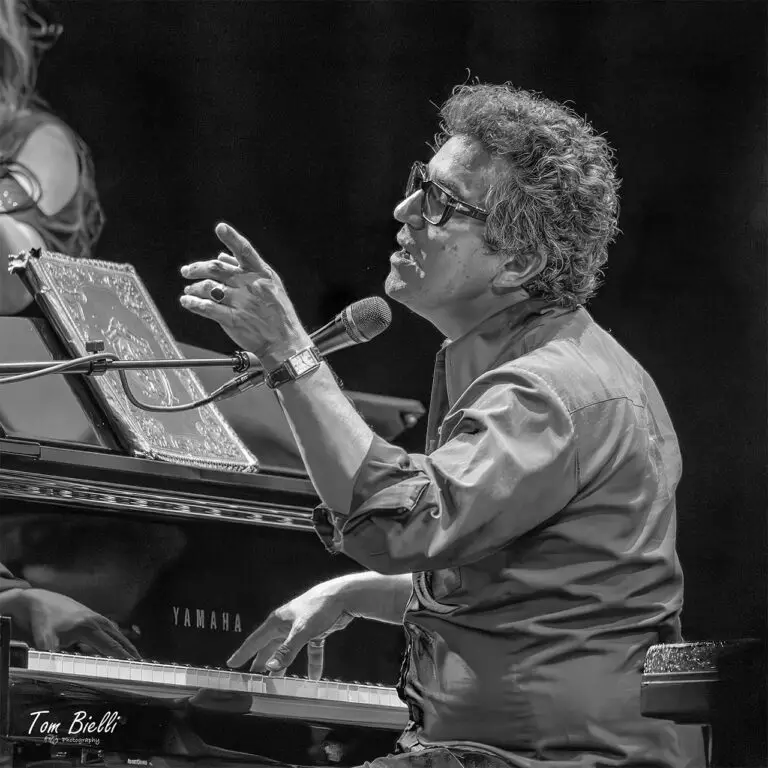
Saturday night, the younger Croce proved himself not only a devoted son, but among the best honkytonk and R&B pianists out there and a deft guitarist, vocalist and lyricist.
Barely coming up for air, Croce immersed himself in a rousing rendition of “Workin’ at the Car Wash Blues” before “showing off for a minute” on probably 75 of the piano’s 88 keys in an instrumental segue to Billy Preston’s “Nothing from Nothing,” third in the set list.
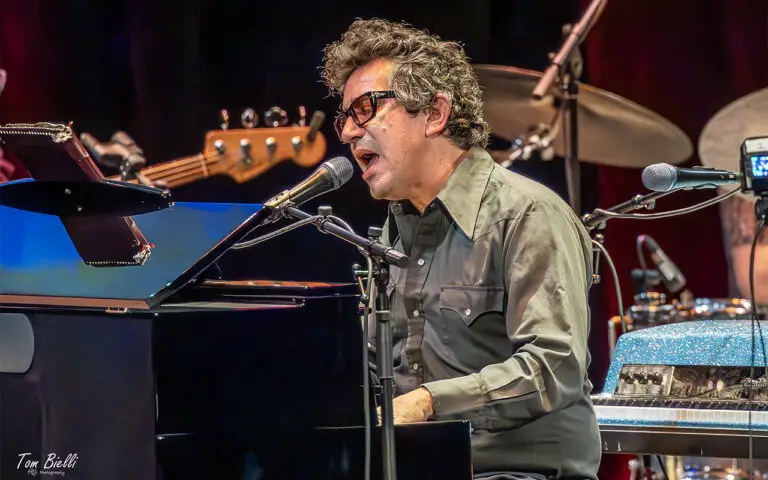
Switching to guitar, Croce covered his father’s song, “Box #10” then presented some possible redemption for the poor-luck theme with his own “Better Day.”
Box #10 is a rueful ballad about an itinerant musician who calls his parents for financial help but is mugged after receiving it, losing both the cash and his guitar and deferring the hope of “getting back on his feet again.”
While clearly honoring his father’s memory and talent, often showing clips of family life when he was a toddler, AJ Croce wasn’t afraid to poke fun at some of his father’s lifestyle choices and even hard knocks before the elder Croce gained fame with several hit singles in the early 70s.
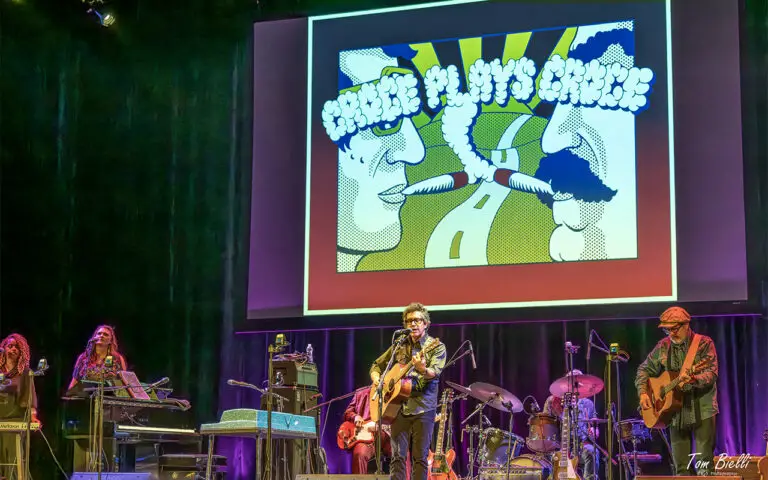
“My father basically did a series of odd jobs to avoid working,” the younger Croce quipped. “He had two master’s degrees that prepared him for life in the 12th century” and was a musical “ambassador” abroad during LBJ’s administration.
In introducing his dad’s musical tale of “Speedball Tucker” (backed by old footage of tractor trailer accidents), Croce related that his father had made ends meet for a while as a long-haul truck driver, perhaps indulging in a “little pill” called a “West Coast Turn Around” to get from New York to LA expeditiously.
“My father had a curious relationship with medication, “ AJ Croce noted. “He believed that what’s good for the sick is even better for the well.
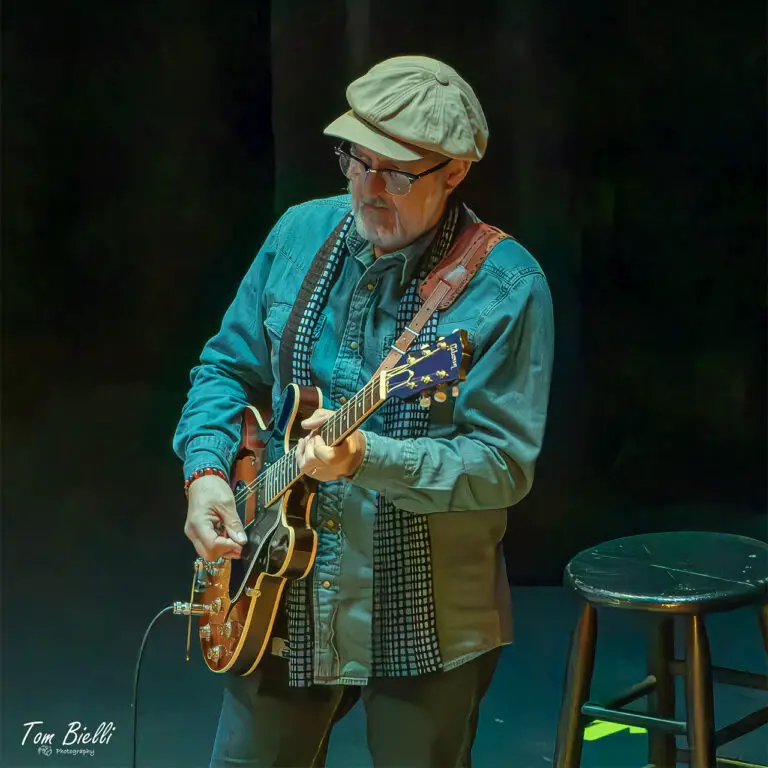
“Good songs can be based on other people’s tragedies,” he continued after the rollicking ode to questionable truck driving. “But Dad believed that to have great songs, you have to have a few [tragedies] of your own. He called them ‘character-building experiences’.”
One such experience was the basis for the hit, “Operator (That’s Not the Way It Feels)”, which AJ Croce proceeded to sing at the concert, but only after comparing a sad story his father had overheard from an open phone booth with AJ’s own tale of a malodorous bus ride where a fellow rider who appeared downtrodden suddenly took out an i-Phone and engaged in lengthy phone sex, in speaker mode, with a woman.
“It went on for like 10 or 15 minutes,” Croce said. “When it ended, the guy finally realized the whole bus was listening. I didn’t know what else to say, so I said, ‘She seemed nice.’
“I got such an earful of nastiness on that bus ride, I ended up with an ear infection.”
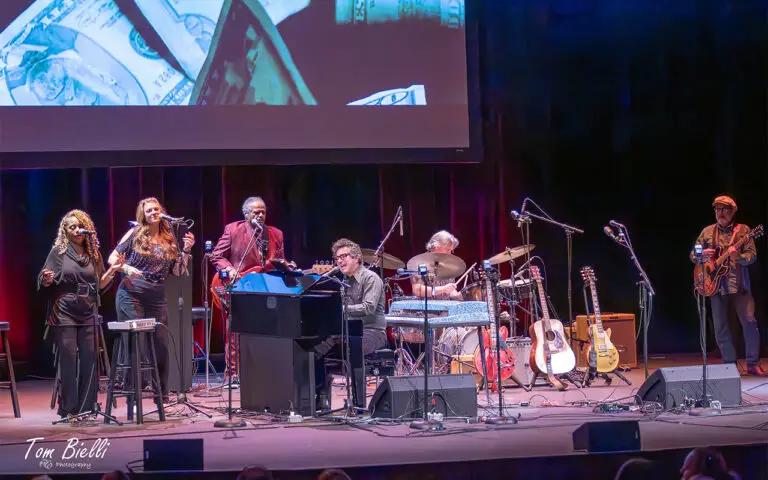
Despite a setlist heavy on the late Croce’s tunes (as well it should be with the billing of “Croce Plays Croce”), AJ Croce sprinkled a few of his own new numbers amidst the old favorites, including “I Got a Feeling,” inspired by late 60s music, and “Complications of Love,” somewhat of a Latin spoof accompanied by violin for the sliding cadence of tango music.
“Turned Around,” “Rollin’ On,” which AJ Croce penned with Leon Russell after reportedly meeting Russell on Willie Nelson’s tour bus, and “Reunion,” a moving collaboration with John Oates about longing to reunite with lost friends and relatives at the end of a long life, were also in the lineup.
“I’ve written thousands of songs,” Croce said at one point. He later shared that one of the reasons it had taken him “so long to play my dad’s music” was a long and busy career which started at age 16 with Floyd Dixon, took him to a Nashville job, and then for a stint with BB King among other notable artists who recognized his ability on piano.
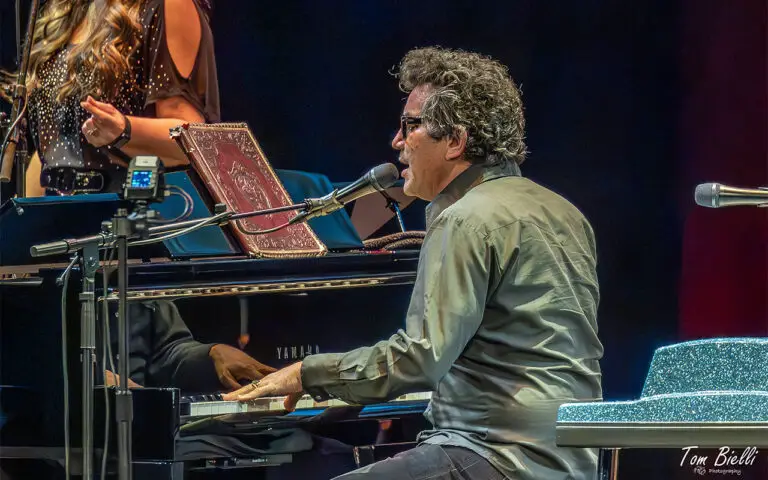
“I’ve had a lot of folks in my life who encouraged me,” he said. “…we all have the ability to encourage people… to make a difference in lives.”
Such humility and recognition of personal limitations and the influence of others laced many of Croce’s anecdotes and monologues.
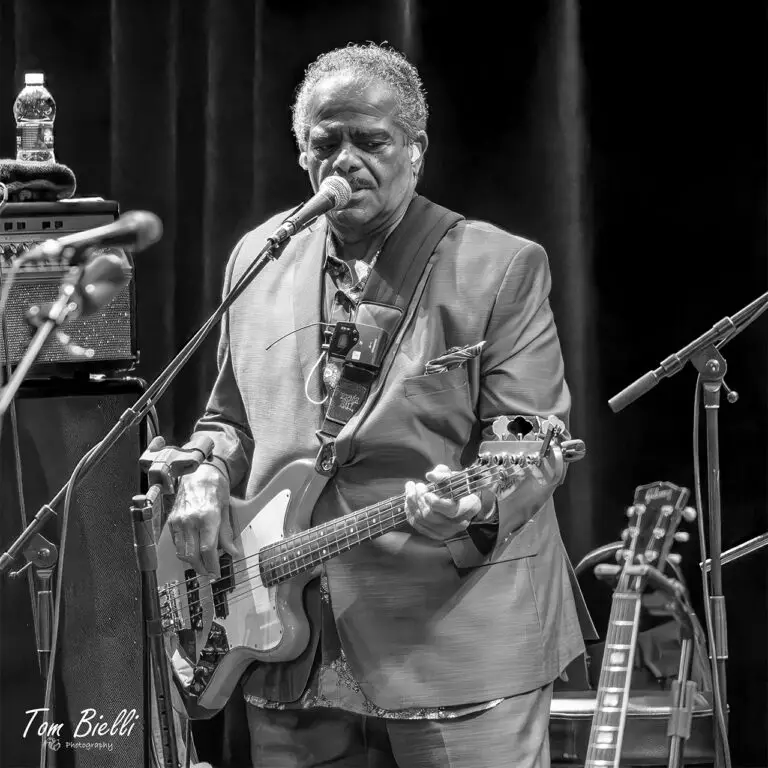
“Ray Charles was my gateway drug [which} led me down a dangerous path of reckless piano players ,” he announced, fondly recalling his dad’s huge collection of diverse music, which he absorbed as a child after his father’s passing.
Jim Croce was killed in a plane crash shortly before AJ’s second birthday in September 1973, and two years later, the younger Croce lost his vision completely for several years before regaining his sight in one eye.
It was during his blindness that he became extremely skilled at the piano, following Ray Charles’s example. He has since worn glasses, and made reference to them in the leadup to an original post-Covid song, “So Much Fun.”
After unraveling a long and humorous yarn about his boredom and search for fulfillment during “that year when we were told to stay home,” Croce said he “pretty much just went around the house in a robe, swim goggles and tap dance shoes.
“Tap shoes are really an antidepressant,” he said. “…I ‘d go to the kitchen clip clopping, forget why I went, and just laugh the whole time.”
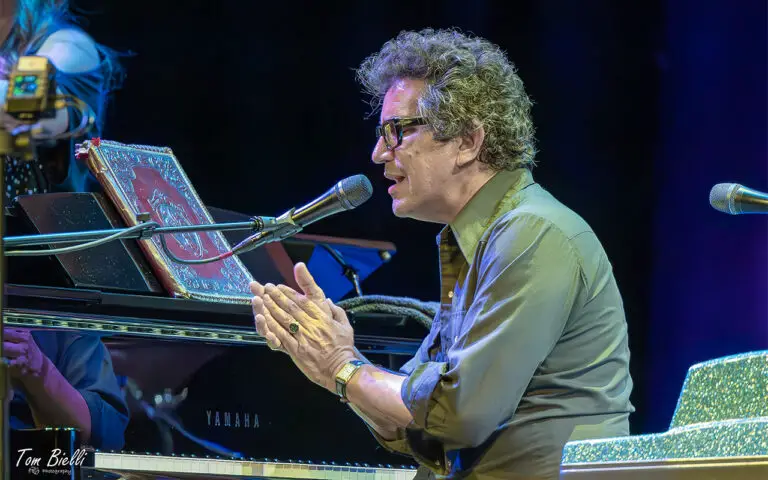
One result was Croce learning to “enjoy my own company,” so much so that when the Covid year ended and he could again entertain friends, “after two hours, I couldn’t wait for them to go home.” He distilled that realization into the lyrics: “It’s so much fun to have ‘em come, but man, it’s good to see ‘em go!”
The up-tempo “So Much Fun,” which Croce pounded out on a blue, sparkly keyboard, was very reminiscent of some of Jim Croce’s songs in both rhythm and the use of refrain. Throughout the concert, the younger Croce paid great tribute to his father’s signature sound in his own delivery, although his voice, higher and slightly breathier than the late Croce’s, was not an exact match in timbre.
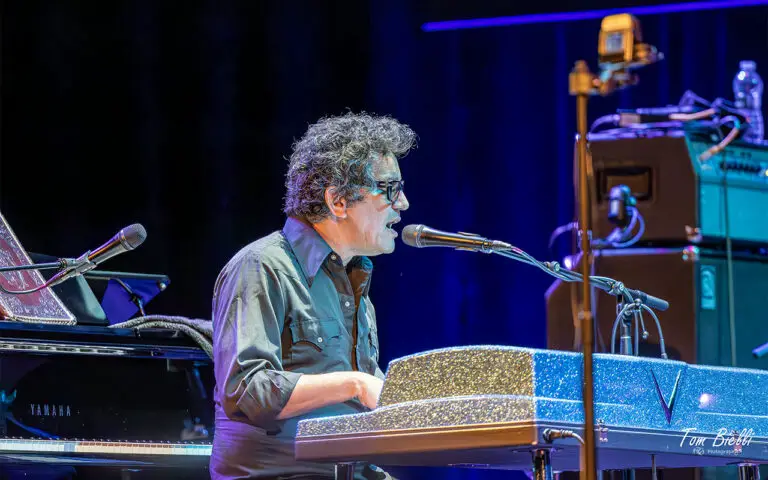
Returning to acoustic guitar, AJ Croce followed his post-Covid tune with the second of two songs his father had been working on when Jim and his wife, Ingrid, moved from New York City back to rural Pennsylvania near Philadelphia: “New York’s Not My Home.” The younger Croce merged that with another Jim Croce hit, “I’ll Have to Say I Love You in a Song.”
Afterwards, AJ Croce opened the show up to requests till he jokingly cut off the ensuing free-for-all with “OK, OK, stop yelling at me…we’ll try to get them all in.”
Tunes in this segment included “Next Time, This Time,” “Alabama Rain”, “One Less Set of Footsteps” and “Rapid Roy (The Stock Car Boy),” which prompted another anecdote about how Croce’s dad had frequently visited the Bethlehem and Reading, PA speedways and how AJ had taken his own children to the track on Sundays a generation later.
“So many ways to crash up cars,” he reminisced. “There were people who had two or three jobs just to support their ‘chrome habit.’”
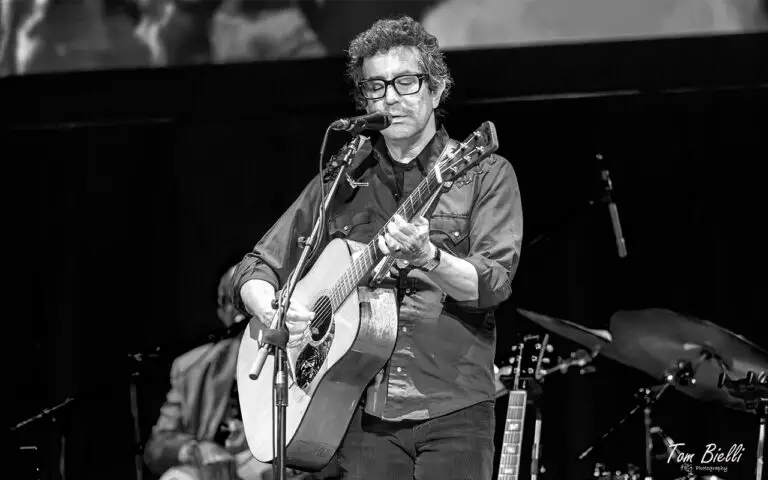
The smash-up, free-wheeling theme popular in the 1970s carried over to many of the backdrop graphics used in the show, including a vintage cartoon depicting the saga of Bad, Bad Leroy Brown, and even the playbill graphic for the tour: a winding road with cartoon profiles of a bespectacled AJ and mustachioed Jim Croce smoking puffy letters that spelled out “Croce Plays Croce”. The style, recalling mid-century graphic art, evoked bits and pieces of Peter Max, Roy Lichtenstein (complete with Ben-Day dots), Phillip Guston’s profiled figures with big cigars, and some fleeting memories of Schoolhouse Rock for me.
The show veered momentarily from the rock’n’roll flourishes of the stock car song to the surprising Latin instrumentation in the opening of AJ Croce’s self-described “folk song,” “Judgement Day.”
The slick playing and musical changeups showcased his virtuoso piano skills then morphed mid-song into a mournful spiritual with lyrics such as, “Can you see the people standing in judgment? I can see my mother…Oh Lord, I can see my father.” It was haunting, nostalgic yet perhaps prophetic: memories stolen from a child by tragic loss.
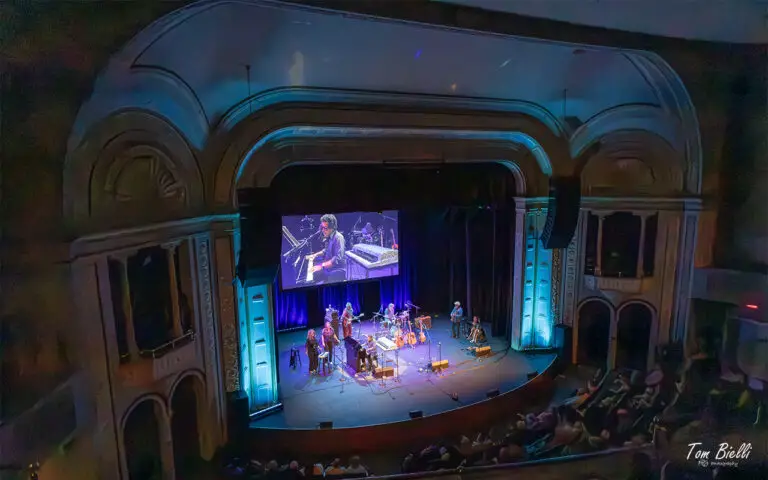
Among other memories from the ‘70s that were shared with AJ after his father’s death was a pearl of wisdom. He, in turn, shared it with his audience Saturday night.
“I have a mantra from my dad,” he said. “He used to say, ‘Adrian, don’t be an asshole.’ I think you can distill the 10 Commandments down to that one [piece of advice]: ‘Don’t be an asshole.’
“If we leave this place and share that, maybe we can make the world a little better.”
After a quick glance at his watch following “Judgement Day”, Croce closed the regular set with two must-plays from his father’s repertoire: “Bad, Bad Leroy Brown” and “I Got a Name.”
The latter was a particularly appropriate finish to “Croce Plays Croce” with its lyrics: “Like my daddy before me I carry it with me,” and “Movin’ me down the highway … so life don’t pass me by.” The highway image appears in the graphic design for the tour, tying the sentiments of the show’s stories and songs together .
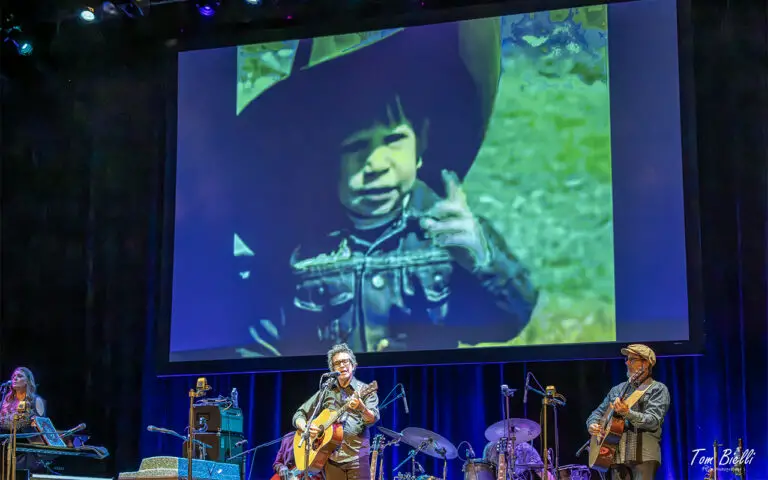
AJ Croce’s band, which consisted of drummer Gary Mallaber, bass player and backup singer David Barard, James Pennebaker on guitar and violin, and background vocalists Katrice Donaldson and Jackie Wilson, contributed throughout the performance, with solo interludes by Pennebaker and a move from drums to piano by Mallabar for a few bars of “Time in a Bottle,” the encore finale.
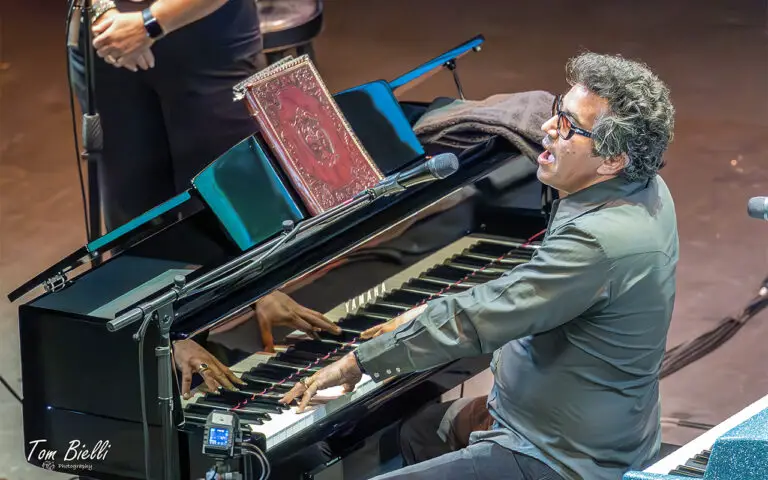
Setlist: You Don’t Mess Around With Jim (Jim Croce cover), Workin’ at the Carwash Blues (Jim Croce cover), Nothing from Nothing (Billy Preston cover), Box 10 (Jim Croce cover), Better Day , I Got a Feeling, Complications of Love, Speedball Tucker (Jim Croce cover), Operator (That’s Not the Way It Feels) (Jim Croce cover), Rollin’ On ( AJ Croce & Leon Russell), The Heart That Makes Me Whole, Reunion (AJ Croce & John Oates), Roller Derby Queen (Jim Croce cover), So Much Fun, New York’s Not My Home/I Have to Say I Love You with a Song (Jim Croce cover), Next Time, This Time (Jim Croce cover), Alabama Rain (Jim Croce cover), Turned Around, Hey Margarita, One Less Set of Footsteps (Jim Croce cover), Rapid Roy (The Stock Car Boy) (Jim Croce cover), Judgement Day, Bad, Bad Leroy Brown (Jim Croce cover), I Got a Name (Jim Croce cover)
Encore: Time in a Bottle (Jim Croce cover)
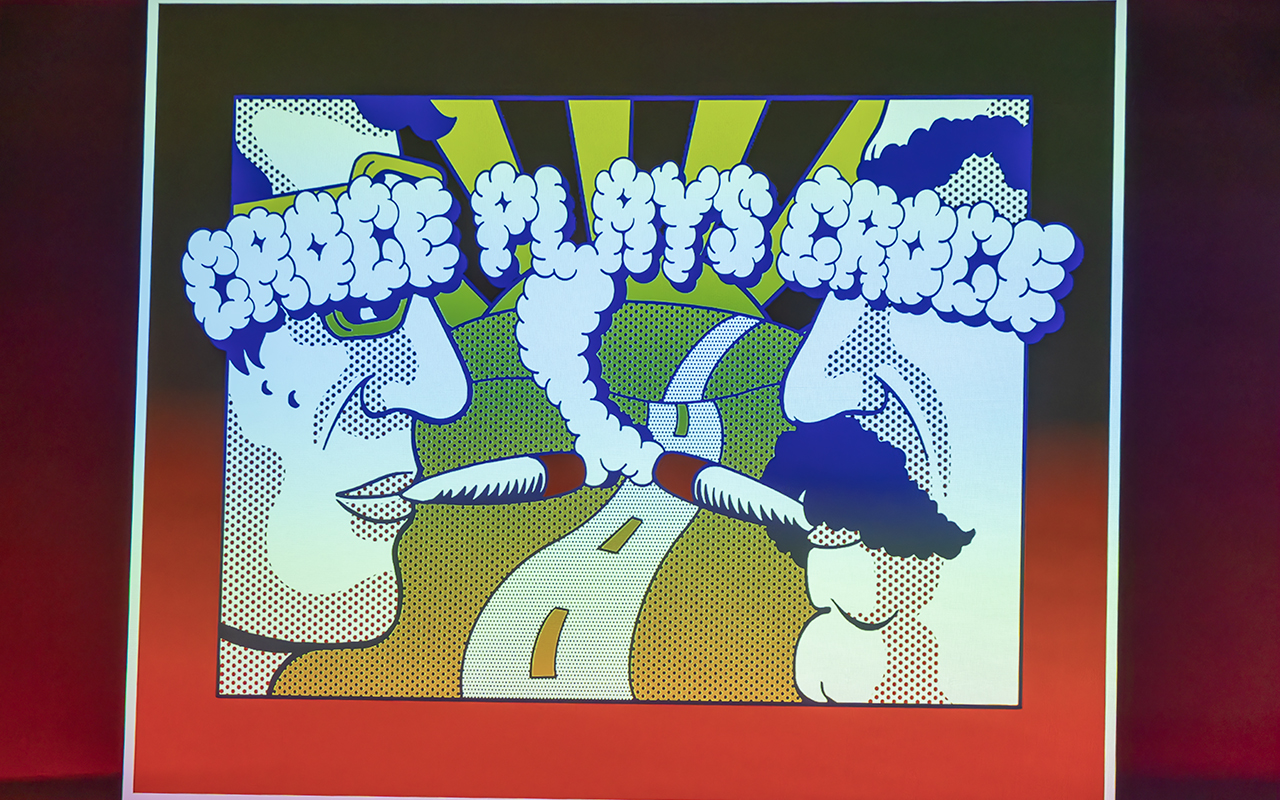
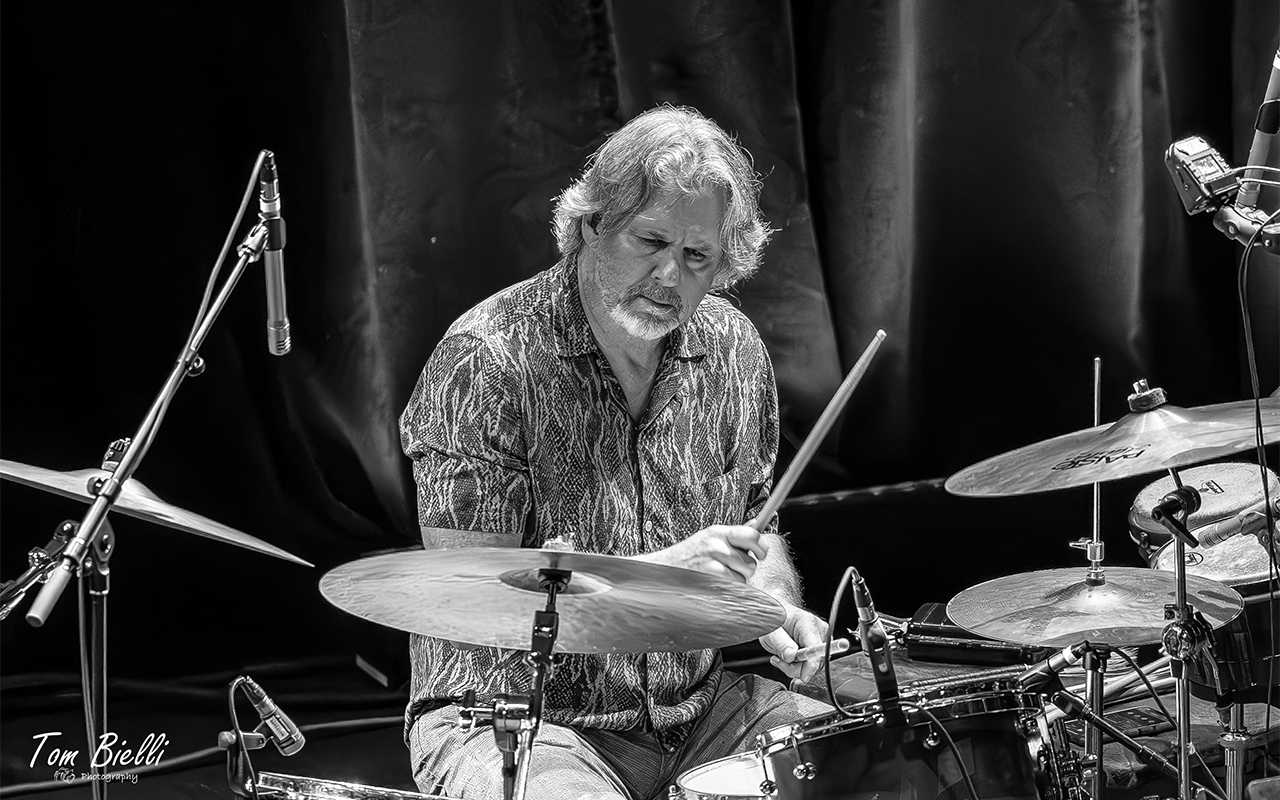
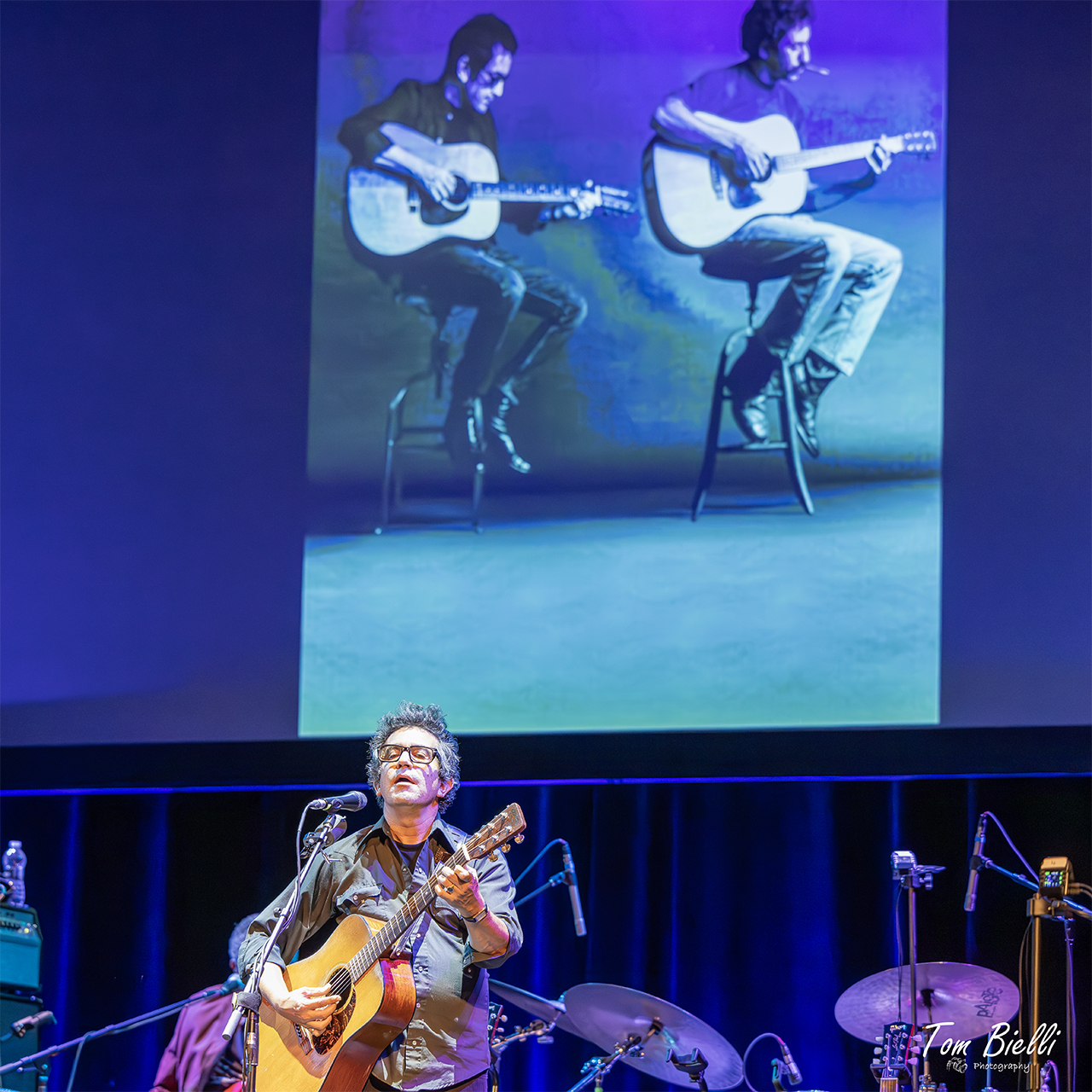
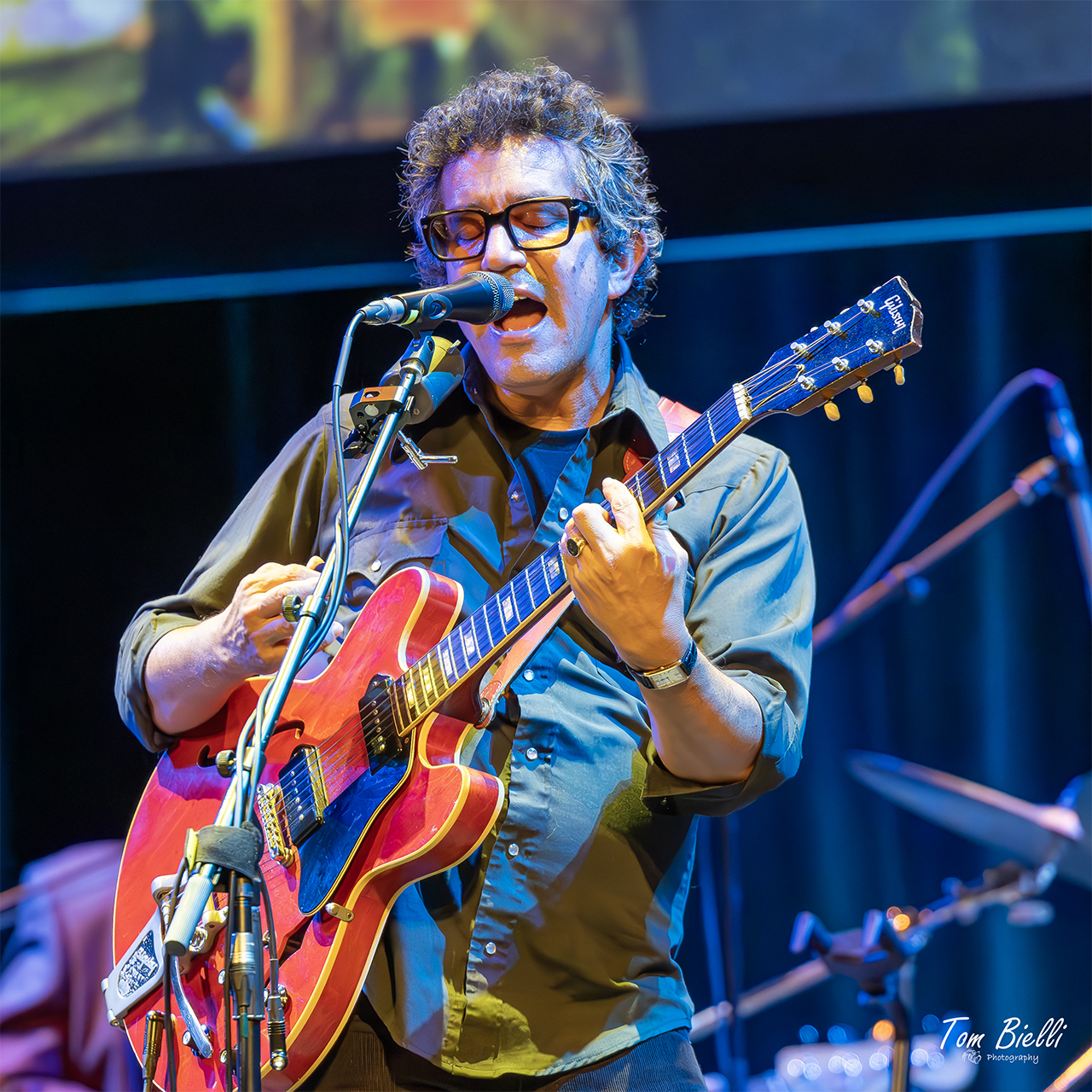
→ Continue reading at NYS Music
